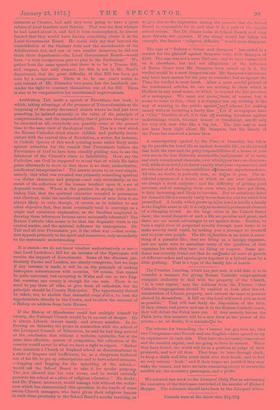The case of " Rubery v. Grant and Sampson "
has ended in a verdict for the plaintiff against Sampson only, with damages of £500. The case was not a mere libel case, and we have commented on it elsewhere, but had not allegations of the influence of Baron Grant over Mr. Sampson been mixed up in it, the verdict would be a most dangerous one Mr. Sampson's intentions may have been matter for the jury to consider, but as against the Times the verdict is most harsh. After a most careful perusal of the condemned articles, we can see nothing in them which is libellous in any usual sense, or which is beyond the fair province of a newspaper. We must not quote: them, of course, but it seems to come to this,—that a newspaper can say nothing in the way of warning to the public against;:any! scheme for making money without incurring a heavy fine. Yet if newspapers have a " City " function at all, it is that of warning investors against undertakings which, whether honest or fraudulent, are fit only for very rich men who like a big bet. The jury may or may not have been right about Mr. Sampson, but the liberty of the Press has received a severe blow.






































 Previous page
Previous page